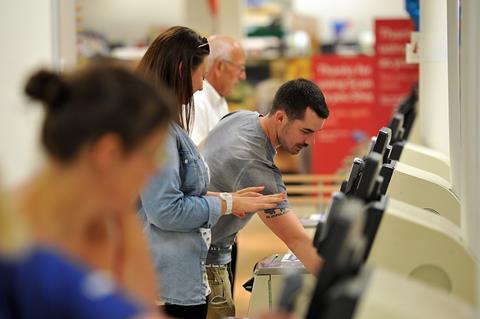
Top story
UK retail sales growth slowed in August, with a small rise in sales making a much larger drop in volumes due to soaring inflation.
According to the BRC-KPMG Retail Sales Monitor, in the four weeks to 27 August, total sales increased by 1% against an increase of 3.0% in August 2021.
This figure is above the 3-month average of 0.7%, but below the 12-month average growth of 2.5%.
Retail sales were up 0.5% on a like-for-like basis from August 2021, when they had increased 1.5%.
Over the three months to August, Food sales increased 3.8% on a total basis and 3.3% on a like-for-like basis, which is above the 12-month total average growth of 0.8%.
For the month of August, food was in growth year-on-year.
However, over the three-months to August, non-food retail sales decreased by 2.0% on a total basis and 2.6% on a like-for-like basis.
In-store sales of non-food items increased 1.4% on a total basis, but online non-food sales decreased by 6.1% in August.
BRC CEO Helen Dickinson commented: “Retail sales growth slowed in August compared to the previous month as consumers reined in spending amidst the spiralling cost-of-living. While inflation in retail prices is lower than general inflation at over 10%, this still represents a significant drop in sales volumes.
“For the first time in recent months, clothing sales were sluggish as summer events ended, and parents held back on back-to-school spending. White goods and homeware remained hardest hit, but products such as air fryers and knitwear did get a boost as thrifty consumers prepare for soaring energy bills.”
“With some predictions of inflation reaching 20% in the new year, households and retailers are preparing for a particularly tough time ahead. As retailers face into their own rising costs from all directions, they continue to do all they can to protect customers from price rises.
“The new Prime Minister could help relieve some of the cost burden, and ease the upwards pressure on prices, by freezing the business rates multiplier for all retail businesses next year. Without this, inflation could whack an additional £800 million onto retailers’ rates bills, which will inevitably lead to even higher prices for households at a time when people’s income is under unprecedented pressure.”
KPMG retail partner Don Williams added: “The warm weather combined with rising prices, saw August sales growth rise by 1% year on year, although volumes will have been challenged.
“The heatwave saw strong growth for health items such as suntan lotion, whilst food and drink sales for summer barbeques grew by 5% year on year and home accessories also saw growth for the first time in months. Online sales dipped by over 6% in August, however the locked-in step-up of online penetration remains.
“Worryingly, August data revealed a significant fall in clothing sales – the category which has been the most robust performer this year which could signal the start of shoppers pulling back from non-essential spending.
IGD CEO Susan Barratt, commenting on food and drink performance, said: “Food and drink sales volumes spent the entire month of August in negative territory, with value sales propped up by the ongoing inflationary pressures that are being steadily fed through the supply chain.
“August has been dominated by increasing inflation, with talks of this going even higher, along with energy price increases. People are reacting - taking action now to try and get ahead. Our data shows that shoppers are investing more time in how they can save money by planning more and searching for value with private label options and seeking out discounts.”
Morning update
Packaging giant DS Smith has posted a strong growth in profits and returns underpinned by continued price recovery and cost management over the summer.
Updating the market on performance since 1 May, the firm said overall trading has been in line with expectations driven by pricing momentum and good cost control.
Corrugated box volumes in Q1 declined slightly on a like for like basis, as expected and against growth in the comparative quarter of 13%, but it continues to expect growth of at least 2% for the full year.
It cautioned that virtually all input costs, including energy, have increased significantly.
These energy cost increases substantially mitigated by efficiency initiatives and by long-term hedging programme.
It said currently more than 90% natural gas costs are hedged for 2023 and 80% for its 2024 financial year, with costs being recovered through increased packaging pricing.
The group’s outlook for the current financial year remains unchanged with an expectation of a significant improvement in performance.
CEO Miles Roberts commented: “We have started the financial year very strongly, despite the current macro-economic conditions. We are focusing on ensuring the highest levels of security of supply and customer service and are very pleased with the ongoing support we receive from both our customer and supplier base. Whilst the industrial sector is showing some weakness, our FMCG business remains resilient.
“The increased profitability and cash generation is being driven by improving efficiency and cost increase mitigation as well as successfully continuing to raise packaging prices. Overall returns on capital remain within our medium term target.”
“As we enter the second quarter, we are very mindful of the challenging economic environment in which we operate and the impact it has on both our customers and colleagues. However, our operating plans and progress to date continue to give us confidence in our outlook for FY23.”
Meanwhile, the group has announced Adrian Marsh will retire from the board and from his role as group finance director once a successor is in place.
A process will be undertaken by the Company to identify and appoint his successor and a further announcement concerning the date of Marsh’s retirement will be made in due course.
Elsewhere this morning, consumer card spending grew 4.7% year-on-year in August – the smallest uplift since March 2021 – as rising living costs hampered the retail sector.
Data from Barclaycard found that while the summer holidays boosted spending on hospitality and domestic travel, overall card spending declined 1.9% month-on-month, as consumers become more selective with discretionary purchases to ensure they can afford rising household bills.
Spending on essential items grew 7.2% year-on-year – its highest growth since December 2021.
That saw supermarket shopping experiencing its largest year-on-year uplift (4.7%) since February 2021, while specialist food and drink stores returned to growth (0.6%) for the first time in eight months.
These uplifts are likely due to rising inflation, Barclaycard said, as well as the relaxing of all Covid restrictions in August last year which led more Brits to dine out in restaurants, rather than at home.
However, spending at supermarkets and food and drink specialist stores has declined compared to July 2022 (-3.6% and -1.6% respectively), with nearly half of consumers seeking to obtain more value from, or to reduce the cost of their weekly shop.
Spend on fuel rose 23.9%, its lowest growth in 12 months, owing to a slight decline in petrol and diesel prices and drivers opting to reduce vehicle use to save money.
Average spending on utility bills was up 45.2%, greater than the growth seen in July (43.9%) and June (39.6%) this year.
Meanwhile, spending on non-essential items grew 3.6% year-on-year – the lowest growth since February 2021 as a number of categories saw declines.
Clothing retailers saw a noticeable decline (-1.9% year-on-year and -10.7% month-on-month) as did department stores (-4.3% year-on-year and -7.7% month-on-month).
However, restaurants and bars, pubs & clubs enjoyed a reprieve in August, rising 6.6% and 8.4% respectively, with the sector boosted by the sunny weather.
José Carvalho, head of consumer products at Barclaycard, said: “The cost-of-living is clearly leading Brits to cut-back on some non-essential purchases to ensure they can afford the increasing costs of their weekly grocery shop and household utility bills. Yet, despite these inflationary pressures, consumers have still been keen to enjoy the summer weather by eating and drinking out and going on staycations with friends and family.
“However, an energy price rise on the horizon means the majority are understandably very concerned about whether their finances can stretch far enough to afford rising household bills. Many Brits plan to continue cutting back on their discretionary spending during the autumn and winter, while adopting a resourceful approach to saving money in order to weather a challenging period ahead.”
On the markets this morning, the FTSE 100 is up another 0.3% to 7,305.6pts.
Early risers include Greggs, up 6.6% to 1,963.1p, Marks & Spencer, up 5.9% to 130.9p and Deliveroo, up 5.9% to 85.2p.
Fallers include Glanbia, down 4% to €11.97, Bakkavor, down 2.1% to 94p and Science in Sport, down 0.7% to 28p.
Yesterday in the City
The FTSE 100 started the week on the front foot, rising 1.9% on Monday after last week’s losses to close at 7,281.1pts.
Risers included Virgin Wines, up 8% to 51.5p, Just Eat Takeaway.com, up 4.7% to 1,362.4p, FeverTree, up 4.4% to 837p, C&C Group, up 3.9% to 163.3p, THG, up 3.7% to 53p, SSP Group, up 3.4% to 204p and DS Smith, up 3% to 263p.
The day’s fallers include Bakkavor, down 14.3% to 96p, Naked Wines, down 5.7% to 130p, Finsbury Food Group, down 2.8% to 73p, Nichols, down 2.5% to 1,120p, Ocado, down 2.2% to 719.6p and Marks & Spencer, down 2% to 123.7p.







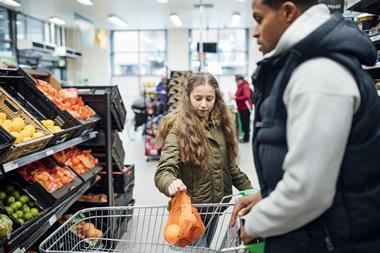
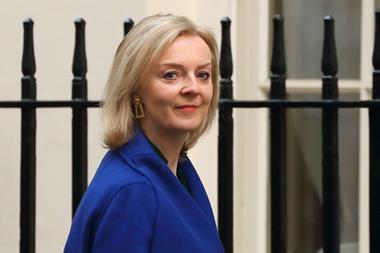
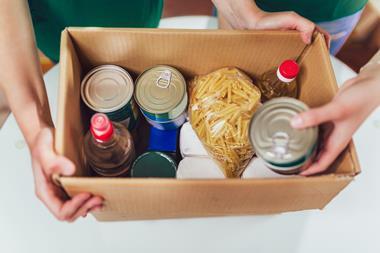
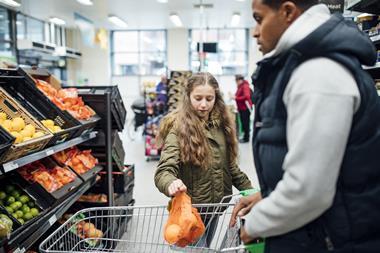
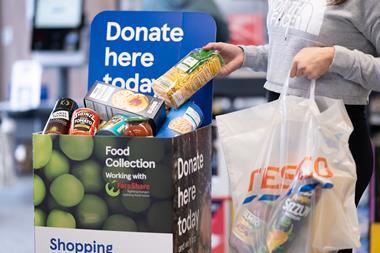
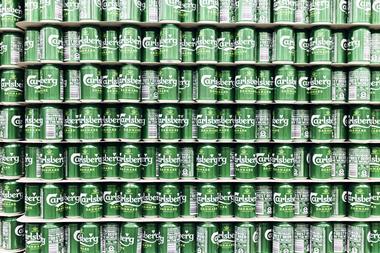
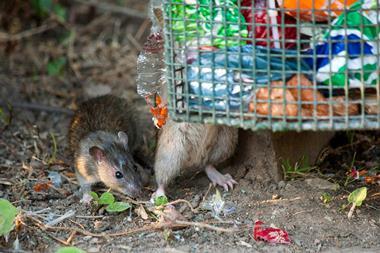

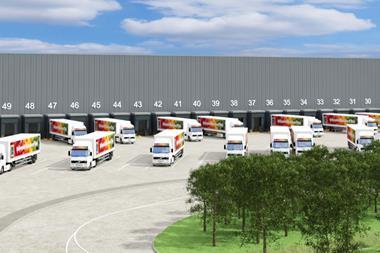

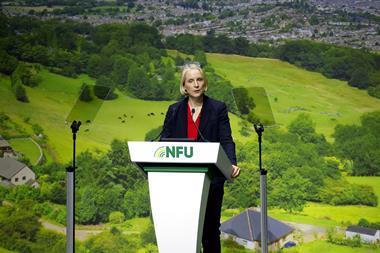
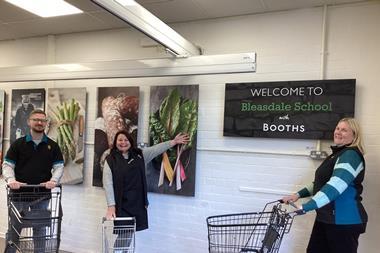
No comments yet